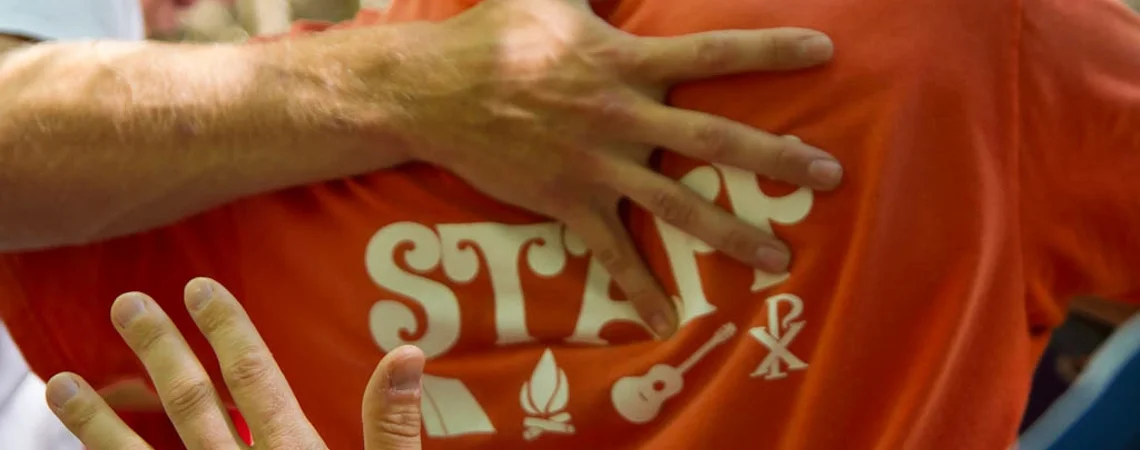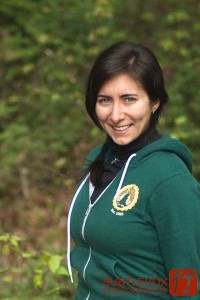The best way to ensure that your summer staff members are fully prepared for their positions is to make sure to arm them with ALL the information they will need to succeed.
It will be up to you to decide what members of your staff need to know the information: is it just for new people, section heads, programme staff, counselors? If not everyone needs to know what you have to explain, you may want to use those already in the know to help you do the teaching.
During your time of staff training, it is your job to ensure you cover it all and that you do so in a way that helps your staff to remember. So be creative! Returning staff members love to get involved - just be sure to fully frontload your expectations so that returning staff understand their roles perfectly.
Your list of what to explain will include: all the rules, the location of everything, what time meals are, when free time is, when they are allowed to leave site, how to stay warm at night, what your camp words mean (all camps have their own lingo) and the list goes on (and on, and on).
Here are 2 examples of 'the location of everything':
#1 Your new staff members will need a complete site tour. Even if they have been campers at your camp before, there will be areas where they have never been and it is important that they now see all areas of camp from a staff member's perspective:
- If you are able to drive around your site, get your camp bus or van ready (of course, if you don't have a vehicle, a walking tour is always in style)
- You may want to begin with a fun and creative announcement at the end of your first meal. Have a senior member of staff dress as a bus driver and one as a tour guide, complete with clipboard and whistle.
- They can disrupt your announcement time and call forward all the new staff members.
- Have costumes ready for your new people to dress as "tacky tourists" (hawaiian shirts, old cameras, funny hats, bermuda shorts, socks with sandals - you get the idea).
- Put them on the camp bus and give them the guided tour. Amusing accents are always a nice touch!
OR
#2 This activity is for all staff members but, of course, allows the new people to see the site during the process:
- Ahead if time, take photos around your site of very small objects (ex. the padlock on your boat house, a plaque in your chapel, a mail slot in your office). Take 3 or 4 of each object from a greater distance each time. The first photo and perhaps even the second may be difficult to determine but the third of fourth photos should be more obvious.
- Print out the photos - one set for each group (don't make the groups too big).
- Divide staff into well-mixed groups and have the groups begin at different starting points (you will know where each group should begin according to the order you will have determined for each group).
- Ahead of time, you will have numbered envelopes and put all the 'first' photos (except the very first one you will hand them at the start) at the appropriate spots so that each group has their next photo available to them when they find their object (like a treasure hunt).
- Be sure to only give them the 1st photo of their first object to start.
- Should they be unable to figure out the 'first' picture, they may come back to you (tell them where you can be found) for the next picture in the sequence of that particular object (which is larger). They may continue to return for the next larger picture until they figure it out and can move on to the next object.
- Have a race to see which group can figure out the identified objects first. How many objects you use will depend on the amount of time you would like to spend on this activity.
- During this activity, each group will be traveling your property so, before you begin, be sure to frontload that part of the exercise is to allow your new staff members to learn all about your site.
- Encourage conversations about your site from returning staff members on the way to each area that your groups are exploring. This is their chance to explain what all the areas are used for and how they are used specifically at your camp.
- When you debrief at the end, you can ask to hear from your new staff members what and how much they learned and add points for the best 'explainers' too!
This is just to get your brains started. Every activity during your pre-camp training can be created to allow your staff members to truly experience the magic of camp. We'd love to hear your creative ideas - please leave your suggestions in the 'comments' below!





